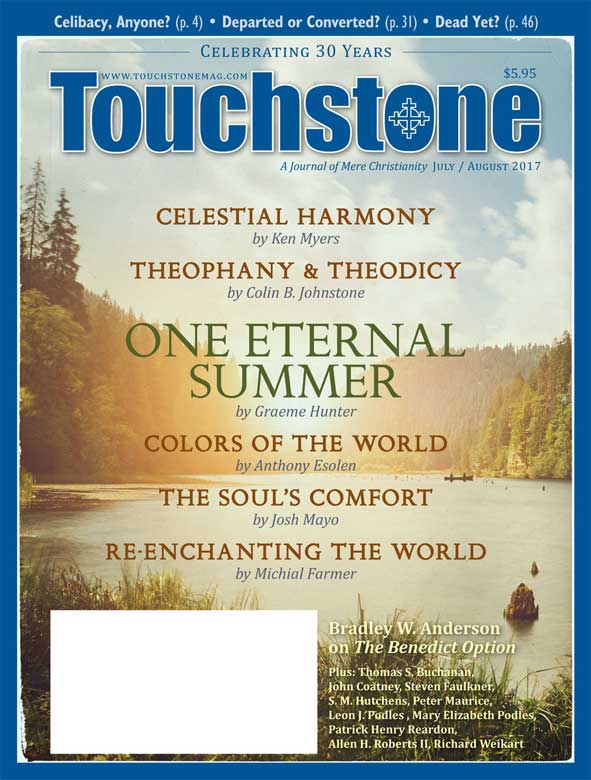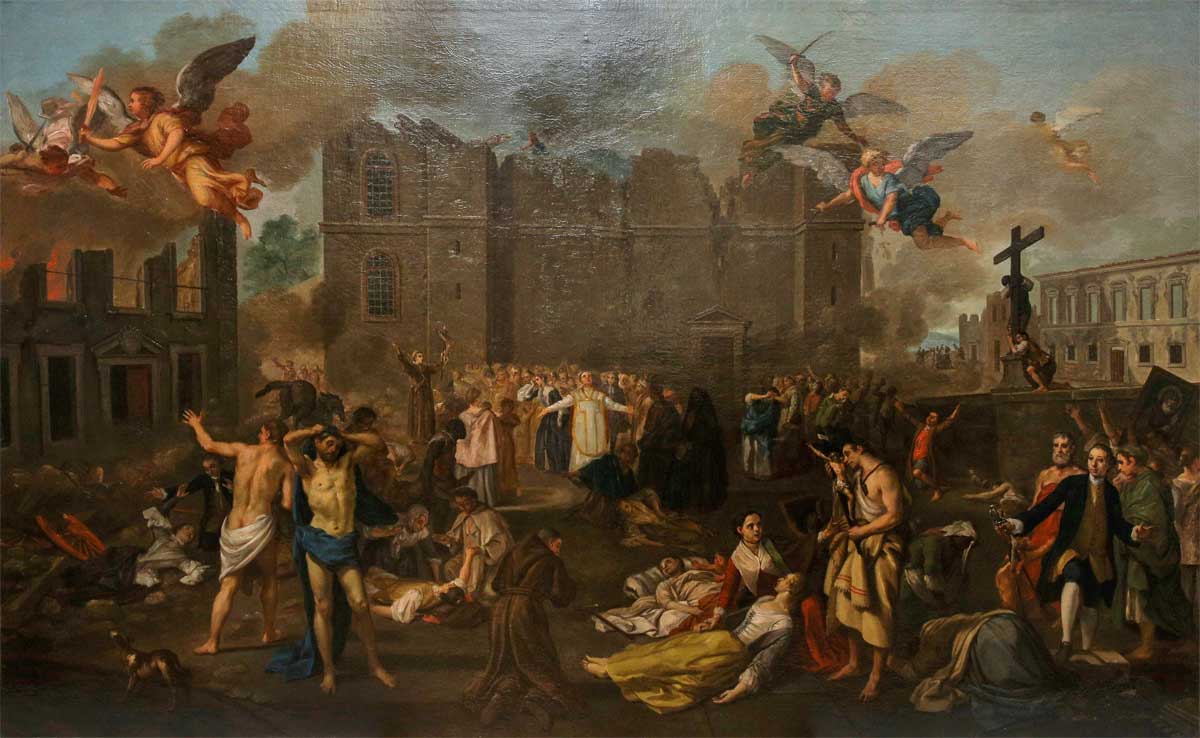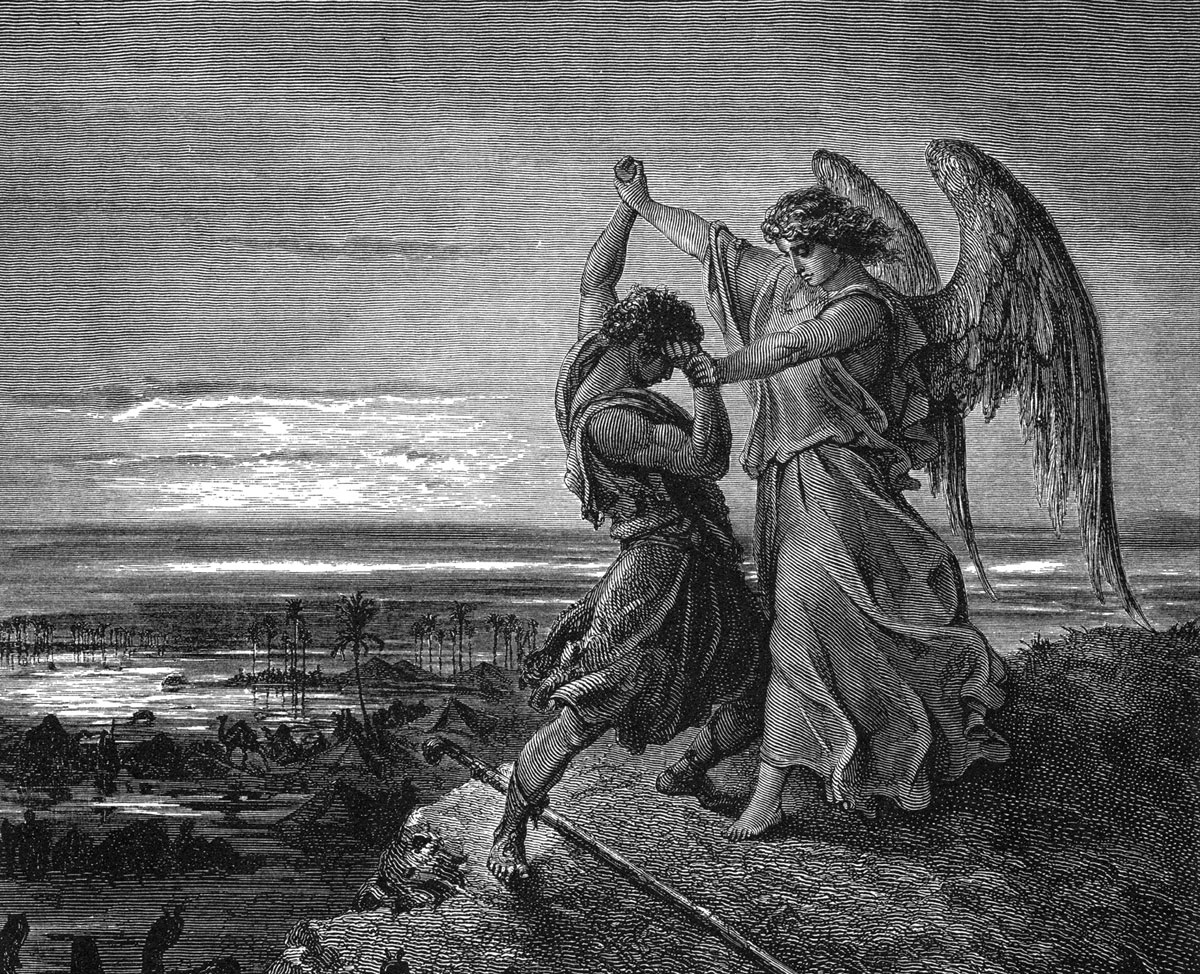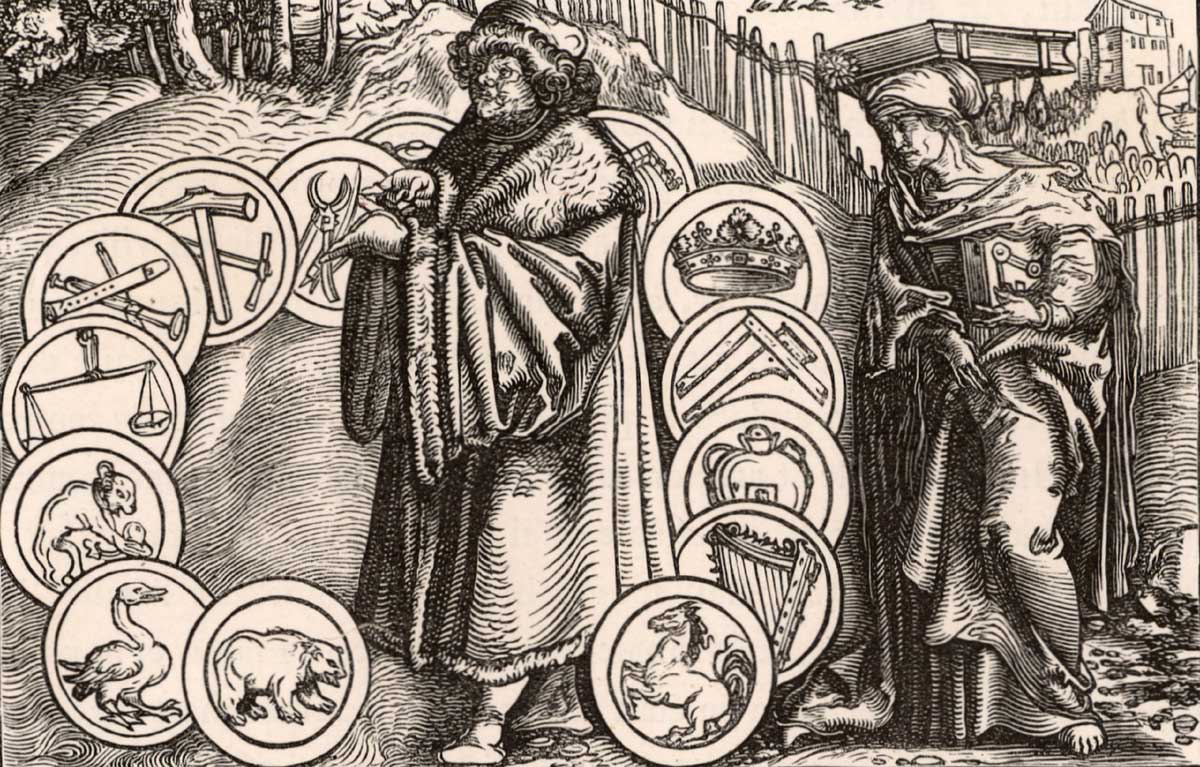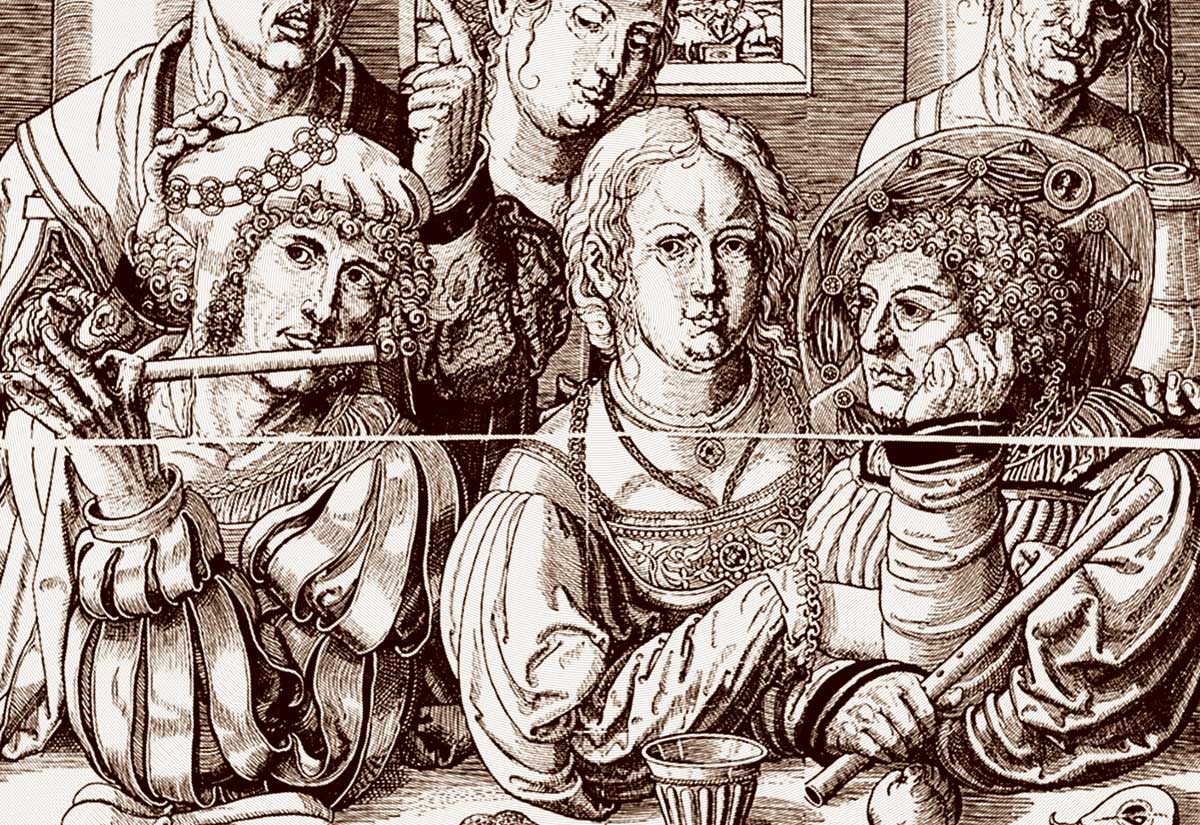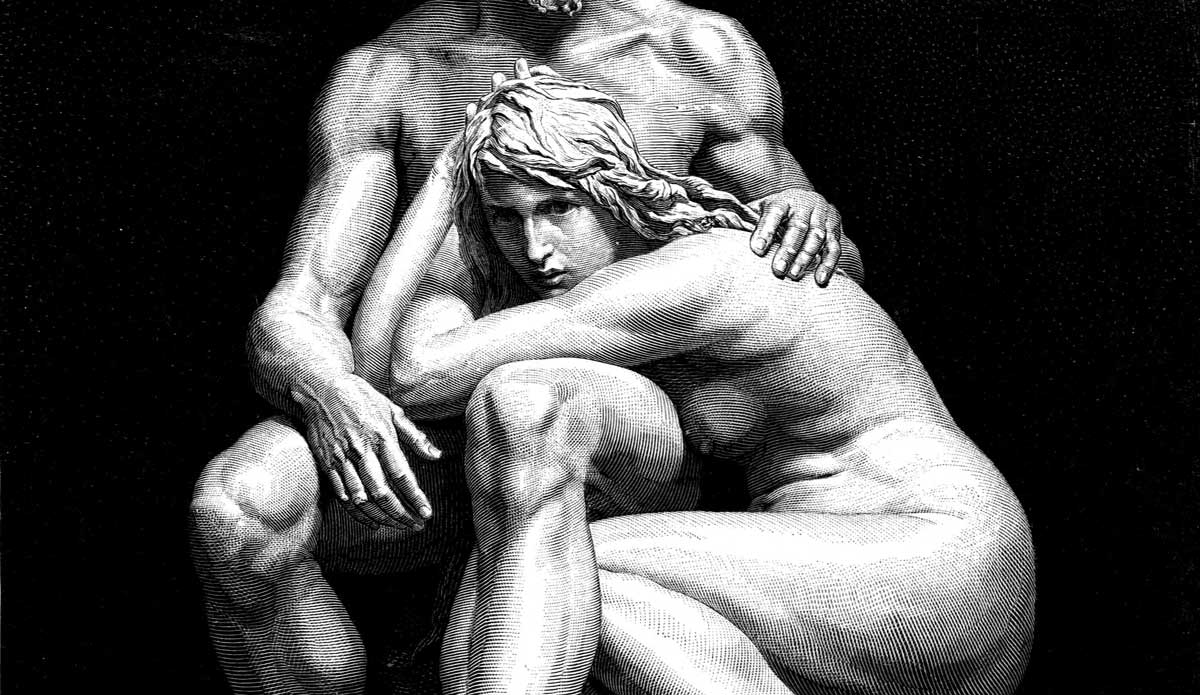Feature
Theophany & Theodicy
When the Inevitable Questions of Suffering Confront the Living God
Going through my father's papers, my mother came across an unpublished article that my father wrote a few years before the onset of Alzheimer's. The progress of the disease made the revising and editing of this article challenging for him. My father had studied the Western classics, and became a theologian and then an applied theologian, spending 25 years in a cancer research hospital as a chaplain. He provided care for terminal patients, taught aspiring chaplains, and counseled scientists and medical doctors in the ethics of care and research. My father wrote the original article that follows; I have abridged and edited it for publication. —David M. Johnstone
There are many important theological questions that are worth struggling with, but the questions that stir our theological passion and return to stir us to further examination are usually questions that arise from our own personal story. An exciting or distressing theological question is usually one that comes out of our pain or our joy. It often is so important to our existential wellbeing that we cannot let it alone.
Questions of theodicy, questions concerning the reconciliation of belief in God's goodness with the existence of evil and suffering, are among the passionate existential questions. They come out of my own story. "Why me?" is not a textbook question but rather a question that comes out of my life and stirs my passions every time it returns. I believe that the important existential questions do return repeatedly, for they are questions of the heart, not of the head. We may have excellent answers for the questions, but they do not quiet the heart's ache. The heart cries, laments, and complains, and although it expresses itself in the language of a question, an answer will not satisfy the lament of a heart.
The Epic of Job
One who honestly and courageously faced the theodicy questions of his story was the man of Uz named Job. I like Job. I know that he is sometimes portrayed as a self-centered male who was more concerned about his own pain than the pain experienced by his wife, the mother of their children. However, that self-centeredness is often typical in the life of one who is overwhelmed by theodicy questions. At least Job confronted his own suffering and cried out his defiance and his pain. Job was not quiet, nor was he patient. He trusted God, and God trusted Job.
I want to examine the mysterious way in which an encounter with the Holy can "answer" the question of God's role in human suffering. In the book of Job there is a paradigmatic theophany in which the voice of God silences the questions and complaints of Job. In Christianity, the experience of the Crucified and Risen Christ, the One who suffers with us, seems to "make it okay" to live without a clear answer to theodicy questions. In pastoral care, we seek to be able to "be with another," and to accept the emotions, the emotional outbursts, the spiritual despair, and the theological questioning. This essential dynamic is not only rooted in good psychological and counseling technique but is also grounded in our experience and understanding of the nature of God and God's response to human suffering.
We know relatively little about Job as a historical figure. He was possibly an Edomite from the second millennium b.c. whose life or story was translated and edited into the canonical book sometime in the postexilic period. Job is an epic tale that is most certainly rooted in truth. Job is described as "blameless and upright, one who feared God—the Lord—and shunned evil" (Job 1:1), a man whose lifestyle could legitimately be described as innocent and underserving of the calamities that come upon him.
While the narrator is introducing us to Job and his thoughtful, caring innocence, we are privy to a conversation between the Lord and Satan, the Accuser, during a gathering with the other divine courtiers ("the gods"). We hear Satan reporting on his observations from "roaming the earth and strolling about in it" (1:7). The Lord, speaking like a proud mentor, asks Satan if he has noticed Job, "a blameless and upright man who fears the Lord and shuns evil" (1:8). Satan, acting like the devil's advocate that he is, challenges the Lord's perception, claiming that Job's righteousness is of a self-serving nature. The Lord appears to fall into Satan's trap and takes the challenge: "Here, all he has is in your power, but do not lay a hand on him" (1:12). This is expanded at a second encounter to, "Here, he is in your power; only spare his life" (2:6).
Wager, Hope & Trust
In a classical tale of parallel lives crossing only in tragedy, we see Job becoming the innocent victim of a cosmic "wager" between the Lord and Satan. There is no doubt in the mind of the reader that Job is, indeed, blameless and upright. He is perceived to be such by the narrator, by his fellows, and by God himself. Satan is the only one to challenge this description, and that is his role in the divine court. Job is innocent and doesn't deserve anything that happens to him. What happens to him is the result of what is happening elsewhere. It is not hard to be reminded by this story that most suffering is the result of what happens elsewhere.
subscription options
Order
Print/Online Subscription

Get six issues (one year) of Touchstone PLUS full online access including pdf downloads for only $39.95. That's only $3.34 per month!
Order
Online Only
Subscription

Get a one-year full-access subscription to the Touchstone online archives for only $19.95. That's only $1.66 per month!
bulk subscriptions
Order Touchstone subscriptions in bulk and save $10 per sub! Each subscription includes 6 issues of Touchstone plus full online access to touchstonemag.com—including archives, videos, and pdf downloads of recent issues for only $29.95 each! Great for churches or study groups.
Transactions will be processed on a secure server.
more on philosophy from the online archives
more from the online archives
calling all readers
Please Donate
"There are magazines worth reading but few worth saving . . . Touchstone is just such a magazine."
—Alice von Hildebrand
"Here we do not concede one square millimeter of territory to falsehood, folly, contemporary sentimentality, or fashion. We speak the truth, and let God be our judge. . . . Touchstone is the one committedly Christian conservative journal."
—Anthony Esolen, Touchstone senior editor







